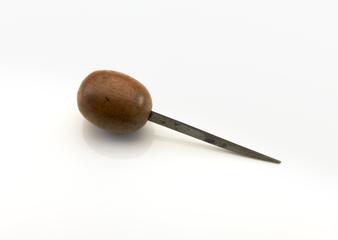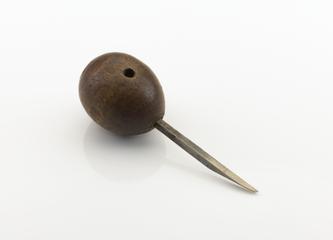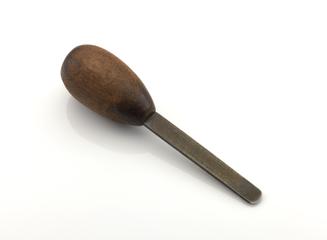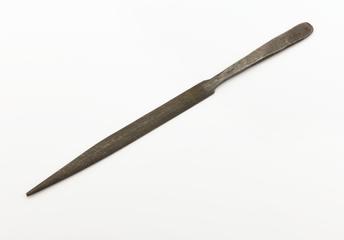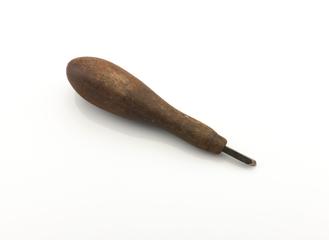Lathe bed and harmonic turnings
- Made:
- circa 1875 in London
- maker:
- Holtzapffel and Company














Lathe bed (Holtzapffel ways, head stock No. 2495) with fact headstock fitted with harmonic slide rest with five photos, of above; screw construction drawings of vases; four ivory vases; one wooden vase; one piece eccentric spiral turning and twenty-one specimens of eccentric spiral turning (see 2 stroke nos).
There are two Holzapffel lathes bearing the number 2495. The first, this one, was made to a specification provided by Hugh Cecil Robinson, a civil engineer living at 35 St James’s Place, London. Robinson was the author of An Introduction to Eccentric Spiral Turning (1906). Lathe no. 2495 includes a compound harmonic sliderest invented by Robinson. Robinson owned a second Holtzapffel lathe too, number 2334. Which he acquired in 1893.
After Robinson’s death in 1911, lathe no. 2495 was presented to the Science Museum.
Robinson’s special apparatus was for producing turned solids the outlines of which are curves, known as Lissajour’s. they are formed by the combination of two simple harmonic motions at right angles to each other. In it the cutting tool is given the combined motion and so cuts the curves directly onto the revolving workpiece.
See WG Ogden, Notes on the History and Provenance of Holtzapffel Lathes, 1987, pp341-342
Turning specimens
Five photographs of the lathe
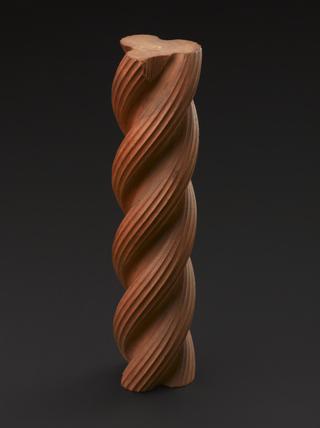
Triple helix model

Double helix specimen
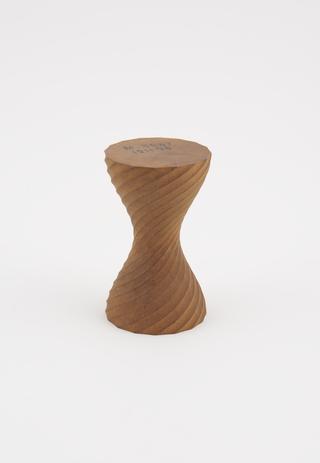
Specimen of harmonic turning
1908
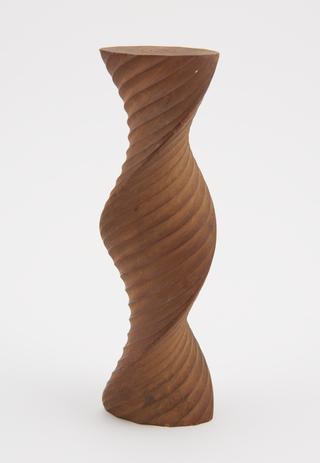
Specimen of harmonic turning
1908

Specimen of harmonic turning
1908
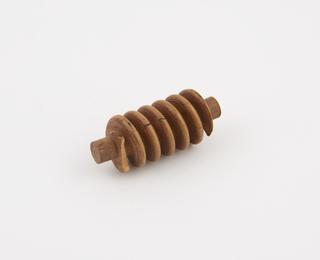
Specimen of harmonic turning
1908

Specimen of harmonic turning
1908
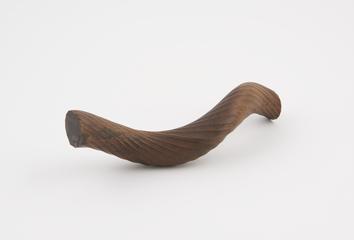
Specimen of harmonic turning
1908

Specimen of harmonic turning
1908
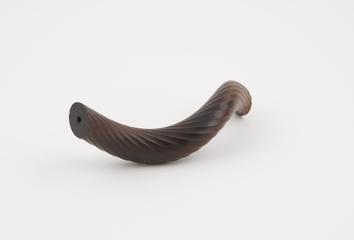
Specimen of harmonic turning
1908

Specimen of harmonic turning
1908

Specimen of harmonic turning
1908

Specimen of harmonic turning
1908
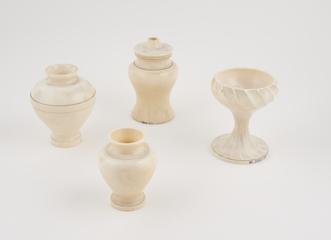
Four ivory vases
Details
- Category:
- Hand and Machine Tools
- Object Number:
- 1911-96
- Materials:
- mahogany (wood), cast iron and steel (metal)
- type:
- lathe bed and harmonic turnings
- credit:
- Robinson, H.C.

